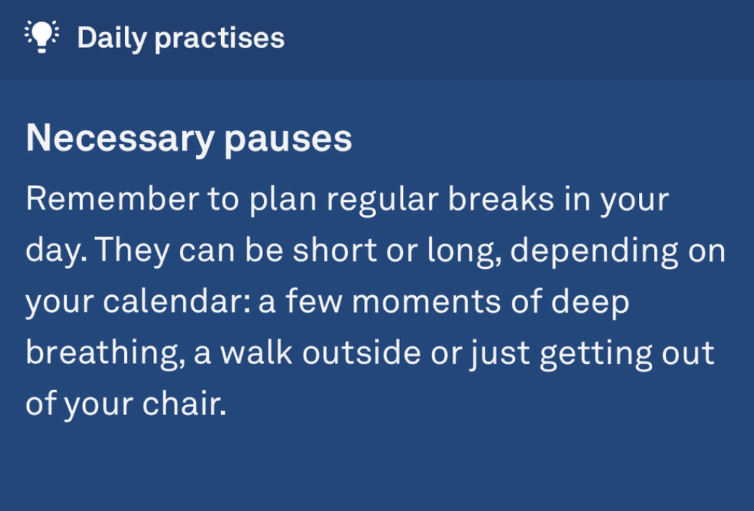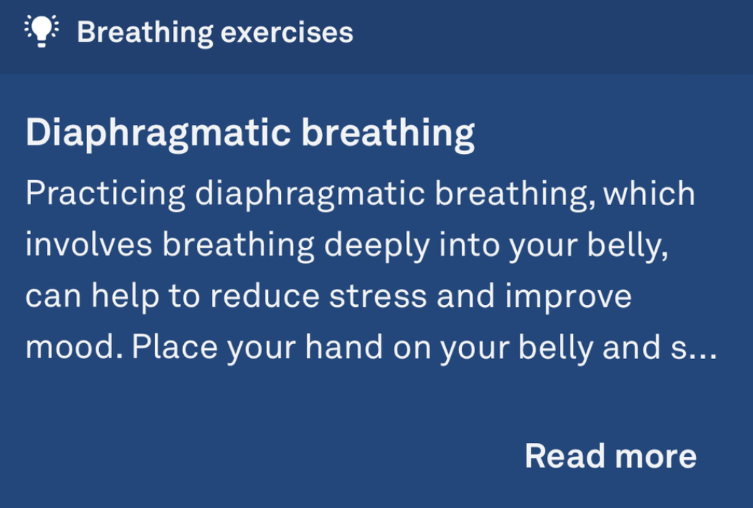Oura’s Resilience feature reflects your body’s ability to manage physiological stress and recover from it over time. Oura determines your resilience to stress by looking at how well you’re balancing physiological stress and recovery in recent weeks based on your daytime stress levels, daily restorative time, and how well you recover during sleep.
Oura categorizes your Resilience level into one of five levels: Exceptional, Strong, Solid, Adequate, and Limited.
Since the feature launched in January, Oura members on Instagram and Reddit have shared their experiences leveling up their Resilience to Strong or Exceptional through healthy habits like better sleep, regular exercise, and taking time for rest.
On the other hand, some members have also been looking for tips to improve their resilience from Adequate or Limited to Strong or Solid.
We’ve previously shared proven ways to build resilience, including sleep, healthy foods, and hormetic stress. But we were also curious to hear more specifics about the strategies members have implemented to see changes in their Resilience. Below are the tips that came out on top.
| Member Tip: In the Resilience feature on the Oura App, check out the daily tip cards, which provide personalized guidance to build up resilience to stress — all backed by science. |
Oura Members’ Top Ways to Improve Your Resilience
1. Maintain a consistent bedtime.
- “A consistent sleep schedule!”
- “Actually sticking to my routine that I know gets me high Sleep and Readiness Scores.”
- “Prioritizing sleep and a constant bedtime.”
- “Very regular sleep times.”
- “Prioritizing sleep at the same time each day.”
Why it works: Sleep is inherently restorative, enabling various physiological processes that regulate both physical and emotional stress, thereby enhancing resilience.
Maintaining regular sleep patterns is crucial because it synchronizes and stabilizes your body’s internal clock, known as the circadian rhythm. Your circadian rhythm functions optimally under consistent conditions, ensuring that processes like melatonin production, sleep pressure, and sleep onset are all optimized as your body anticipates sleep at a specific time.
2. Make time for intentional rest.
- “I have been intentional about carving out rest and restorative moments.”
- “Focusing on restorative time throughout my day, taking breaks to breathe!”
- “Taking breathing breaks throughout the day.”
- “Slowing down. Taking time to rest and let my body relax.”
- “Micro-breaks during the day.”
Why it works: While sleep is crucial for building resilience, it’s not the only factor that matters. How often do you take a few minutes to pause during your day? It’s not always easy, but these breaks make a big difference in your body’s ability to recover from high-stress moments.
Restorative Time, tracked by Oura, measures how much time you spend resting during the day. Even sitting down to mindfully drink a cup of tea can contribute to valuable recovery moments. If you’re constantly on the go without taking breaks, your stress levels will stay elevated, keeping you in a state of physiological arousal that demands longer rest periods to recover.
Instead, aim for micro-breaks throughout your day. Looking for ideas? One of the simplest and most effective ways to incorporate Restorative Time is by trying non-sleep deep rest (NSDR).
READ MORE: What Is Non-Sleep Deep Rest (NSDR)?
3. Add in a little more movement.
- “I added cardio into my exercise routine.”
- “A 5-mile walk each day getting some sunlight and some shade!”
- “Working out more consistently.”
- “Adding in lower-intensity workouts like yoga.”
- “Daily movement.”
Why it works: You don’t need to do a sweaty HIIT session every day to enjoy the stress-busting benefits of exercise. In fact, research shows that a yoga session or a walk outside can provide powerful stress relief and boost your resilience.
Movement helps reduce stress levels, increases blood flow, loosens tight muscles, and biochemically alters your brain chemistry with essential feel-good neurotransmitters.
| Member Tip: Oura tracks daily inactivity time and can send you a notification after 50 minutes of consecutive inactivity. Try to respond to these notifications with some gentle movement to help manage stress and improve resilience. |
4. Get more high-quality sleep.
- “I prioritized sleep.”
- “Focusing on quality sleep balances out high stress scores.”
- “Getting a full night’s sleep.”
- “My Resilience finally improved after focusing on more sleep.”
- “Sleep and more sleep.”
Why it works: Sleep is your body’s way of recovering from stress. During REM sleep, your brain processes difficult emotions and memories, using mechanisms like nightmares to handle stress. These aspects of REM sleep enhance resilience, but only if you get enough sleep overall.
Deep sleep, the most restorative sleep stage, helps cleanse your brain, store memories, repair muscles, and more. Most people get the bulk of their deep sleep in the first half of the night, so going to bed late can cause you to miss out on this crucial stage, impacting your recovery and resilience.
Adults need 7 to 9 hours of sleep per night. However, sleep disturbances, like waking up to use the bathroom, can reduce your total sleep time. To address this, go to bed earlier, incorporate naps, and minimize sleep distractions.
With Oura, you can track every aspect of your sleep, from the duration of REM sleep to the frequency of wake-ups. Use this data to fine-tune your sleep, enhancing your resilience.
Bonus Tip: Cultivate a Growth Mindset
As a final tip, remember that your mindset matters, too. At Oura, we don’t want you to be afraid of stress; in fact, it’s an essential part of building resilience! In fact, Embracing stress is a key aspect of a “growth mindset,” which shapes how you view and approach stress.
While you can’t eliminate stress from your life, you can adopt a “glass half full” mentality. This positive outlook empowers you to handle stressors effectively, reinforcing your ability to thrive under pressure.
RELATED: 8 Ways to Get More Deep Sleep, According to Oura Members













